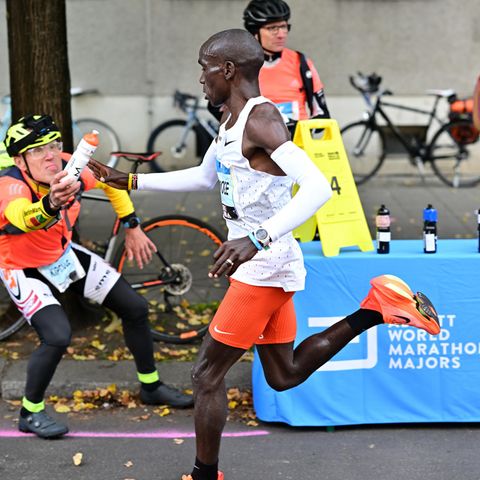Bundestag election
Union clearly leads in the Bundestag election – SPD crashes
Copy the current link
Add to the memorial list
The Union triumphs in the Bundestag election – it is a historically bad result for the SPD. The AfD comes in second place. The left makes it into parliament, FDP and BSW have to tremble.
Germany is faced with a change of power: In the Bundestag election, the CDU and CSU with their candidate for chancellor Friedrich Merz have clearly become strongest strength. The AfD comes in second place after the projections of ARD and ZDF. Behind it is the SPD, followed by the Greens. The left is making the jump over the five percent hurdle and is represented again in the Bundestag. In contrast, the FDP and alliance Sahra Wagenknecht (BSW) have to worry about moving into parliament.
According to the projections, the CDU and CSU improve to 28.7 to 29.0 percent (election 2021: 24.1 percent). The AfD can almost double its result to 19.6 to 19.8 percent (2021: 10.4 percent). Chancellor Olaf Scholz’s SPD drops dramatically for its worst Bundestag election result since 1949 and lands at 16.0 to 16.4 percent (25.7). The Greens with candidate for chancellor Robert Habeck lose easy and come to 12.3 to 13.3 percent (14.7). The left increases significantly to 8.6 to 8.9 percent (4.9). The FDP halves its result and is 4.9 to 5.0 percent (11.4). The BSW, a split off the left, comes to 4.7 to 5.0 percent in its first federal election.
According to ARD and ZDF, the CDU and CSU win 187 to 211 seats in parliament, the AfD comes to 130 to 142 seats. The SPD receives 108 to 116 mandates, the Greens 79 to 97, the left 58 to 63 and FDP and BSW each 0 to 33.
Which coalitions are possible?
Merz has the best chance of becoming a chancellor, but needs partners for government formation. The CDU boss has excluded a merging with the AfD classified as right-wing extremist AfD. If, in addition to the left, FDP and BSW are also in the Bundestag, Merz has to look for two coalition partners. But triple coalitions are complicated, see the failed traffic lights.
A coalition of the Union with SPD and FDP would be conceivable. An alternative would be an alliance of Union, SPD and the Greens – however, the CSU vehemently rejected a coalition with the Greens before the election.
The turnout was 83 to 84 percent higher than 2021 (76.4). 59.2 million people were called for voting, including a good 42 percent 60 years or older.
Enthusiasm at the Union, bitter evening for SPD
CDU general secretary Carsten Linnemann said in Berlin: “The election won the Union.” The traffic light is finally voted out. “The next Chancellor will be called Friedrich Merz.” CSU top candidate Alexander Dobrindt said that the Union would form a new federal government without the Greens.
SPD general secretary Matthias Miersch had a “historical defeat for the SPD”. “It’s a very bitter evening.” The Union is now on the train in government formation. It is open whether the SPD will take over government responsibility again: “There is no automatism at all.”
AfD boss Alice Weidel spoke of a historical result. “We wanted to halve us, the opposite has occurred.” The AfD is ready to work with the Union. “Our hand will always be stretched out for a government participation to implement the will of the people.”
Greens boss Franziska Brantner sees many options for government formation. The evening is still quite open, she said. “I think it is too early to rule out one or the other. It is important for us that the Democrats are available for this.”
Left boss and top candidate Jan van Aken was enthusiastic about the performance of his party. “The left lives,” he said in front of a cheering crowd in Berlin. Co-party leader Ines Schwerdtner spoke of the “comeback of the year” and announced that they wanted to be a “fire wall” against the right in the coming years.
Bundestag is getting smaller – around 100 MPs less
The new Bundestag will be much slimmer due to a reform. The number of deputies was limited to 630 – more than 100 less than up to date. For this, the so-called overhang and equalization mandates are eliminated, which the parliament have often bloated up. Now candidates elected with first vote will only come to the Bundestag if their party also has enough second votes.
The election was preferred by seven months-so far there was only 1972, 1983 and 2005. The reason is that the traffic light coalition from SPD, Greens and FDP had broken in November. After the Bundestag’s no, Scholz proposed the dissolution of Parliament to his question of trust-which Federal President Frank-Walter Steinmeier then ordered.
Election campaign circled for migration and economic weakness
The short winter election campaign was recently characterized by the debate about a limitation of migration. The concrete trigger was the knife attack of Aschaffenburg, where an Afghan, who came as a refugee, stabbed a two-year-old boy and a 41-year-old man. Merz then demanded that asylum seekers to be rejected at the German borders – which would violate Greens and SPD from the perspective of Greens and the SPD. Merz had attracted sharp criticism after the Union had enforced an application for migration policy with votes from the AfD in the Bundestag.
The second topic in the election campaign was the weakening economy. Merz has announced tax cuts and radical changes to the citizens’ benefit. So those who do not work but can work should no longer get citizens’ allowance. The SPD wants to facilitate government investments through a reform of the debt brake. In addition, the state is intended to lose ten percent of the costs with a “made in Germany” bonus for investments in machines or vehicles.
dpa
Source: Stern
I have been working in the news industry for over 6 years, first as a reporter and now as an editor. I have covered politics extensively, and my work has appeared in major newspapers and online news outlets around the world. In addition to my writing, I also contribute regularly to 24 Hours World.




